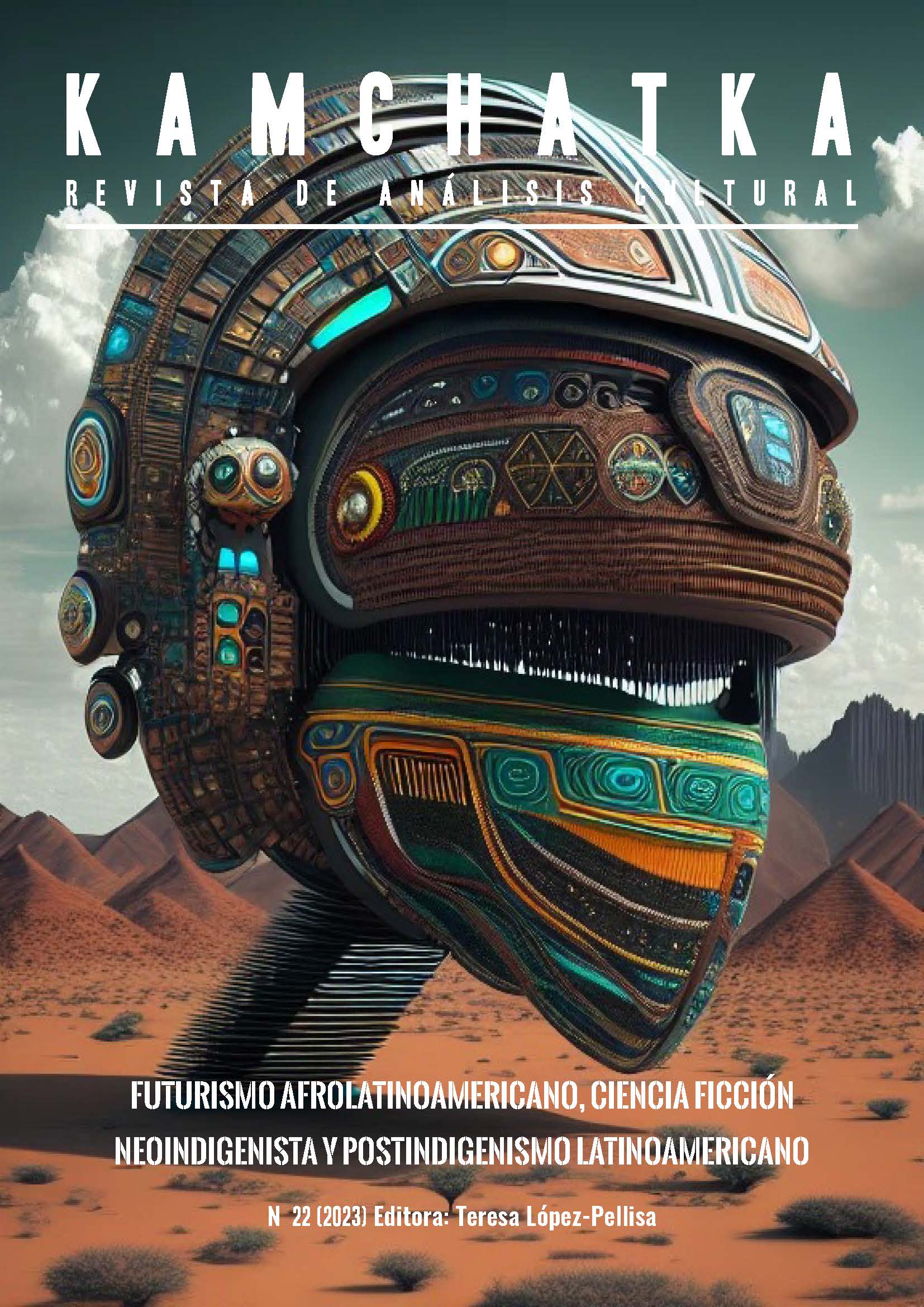The Caribbean we dream of: a culturally mixed future
DOI:
https://doi.org/10.7203/KAM.22.24192Keywords:
Afrofuturism, racism, African diaspora, Pan-Africanism, African Futurism Abstract
Abstract
Afrofutrism emerges as a trend within North American science fiction. This movement is closely related to the fight against racism and the rights of Afro-descendant minorities in the United States. It has been defined as a cultural movement of Afro-descendants and for Afro-descendants in North America. Other movements focusing on African and Afro-American culture outside of the Anglo-American context have now emerged. These literary aspects have great differences with classical Afrofuturism.
In this work we will delve into the subject to find the similarities and differences between the different North American Afrofuturist movements, those of the African diaspora and Africans. We will analyze the relationship between racism and science fiction literature and its differences depending on where it is written.
We will see the Caribbean not as a geographical area but as a multinational territory with a common culture. We will analyze some characteristics of Caribbean science fiction and fantasy that classify as Afrofuturism. We will see that this Caribbean Afrofuturism is its own movement and not an imitation of North American Afrofuturism. Finally, we will question the very use of the word Afrofuturism for the particular case of the Caribbean cultural area.
 Downloads
Downloads
 References
References
Benitez Rojo, Antonio. “De la plantación a la plantación: diferencias y semejanzas en el Caribe”. Cuadernos Hispanoamericanos 451-452 (enero-febrero 1988): 217-239.
Blomkamp, Neill (2009). Distrito 9. Sudáfrica. QED International, WingNut Films, TriStar Pictures.
Bringas López, Ana (2012). Un ajiaco de culturas: historia y mestizaje en la literatura anglocaribeña. Literaturas postcoloniales en el mundo global. Sevilla: Arcibel Editores.
Calderón Rodríguez, Rebeca (1999). “El negro como símbolo de maldad: La construcción del racismo en África”. Monografías.com.
Carpentier, Alejo (1949). “De lo real maravilloso americano”. El reino de este mundo. New York: Alfred A. Knopf Inc, 10.
Dery, Mark (1994). “Black to the future: interviews with Samule R. Delany, Greg Tate, and Tricia Rose”. Flame Wars. The Discourse of Cyberculture. Burham and London: Duke University Press.
Elia, Adriano. “The languages of afrofuturism”. Lingue Linguaggi 12 (2014): 83-96.
Guanche, Jesús y Corral, Carmen (2015). Diccionario etnográfico. Tomo I. Los pueblos del Caribe insular y de México Centroamérica. La Habana: Editorial Ciencias Sociales.
Guillén, Nicolás (1972). “Son número 6. El son entero”. Obra poética 1920-1972. La Habana: Instituto Cubano del Libro.
Indiana, Rita (2015). La mucama de Omicunlé. Cáceres: Editorial Periférica.
Kahiu, Wanuri (2010). Pumzi. Kenya. Inspired Minority Pictures.
Ortiz, Fernando. “Los factores humanos de la cubanidad”. Revista Bimestre Cubana 3 (marzo-abril 1949): 161-186.
Womack, Ytasha L. (2013). Afrofuturism: The World Of Black Sci Fi And Fantasy. Chicago: Lawren-ce Hill Books.
Downloads
Published
How to Cite
-
Abstract1207
-
Documento de autor PDF (Español)470
Issue
Section
License
This journal provides an immediate free access to the content on the principle that freely make investigation available to the public, which promotes an increased global knowledge exchange.
Unless otherwise indicated, texts published in this journal are under the license Attribution-NonComercial 4.0 by Creative Commons. These texts may be copied, distributed and publicly communicated whenever the publication’s author and title are quoted and whenever they are not used for commercial purposes. In any case, intellectual property of the articles and its potential economic rights entirely belong to its authors.
The full license can be consulted on https://creativecommons.org/licenses/by-nc/4.0/. We encourage authors to disseminate papers published in Kamchatka. Journal of cultural analysis electronically, in institutional digital repository or in their websites.





